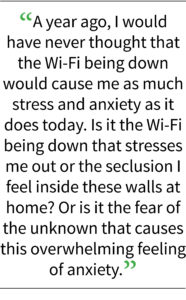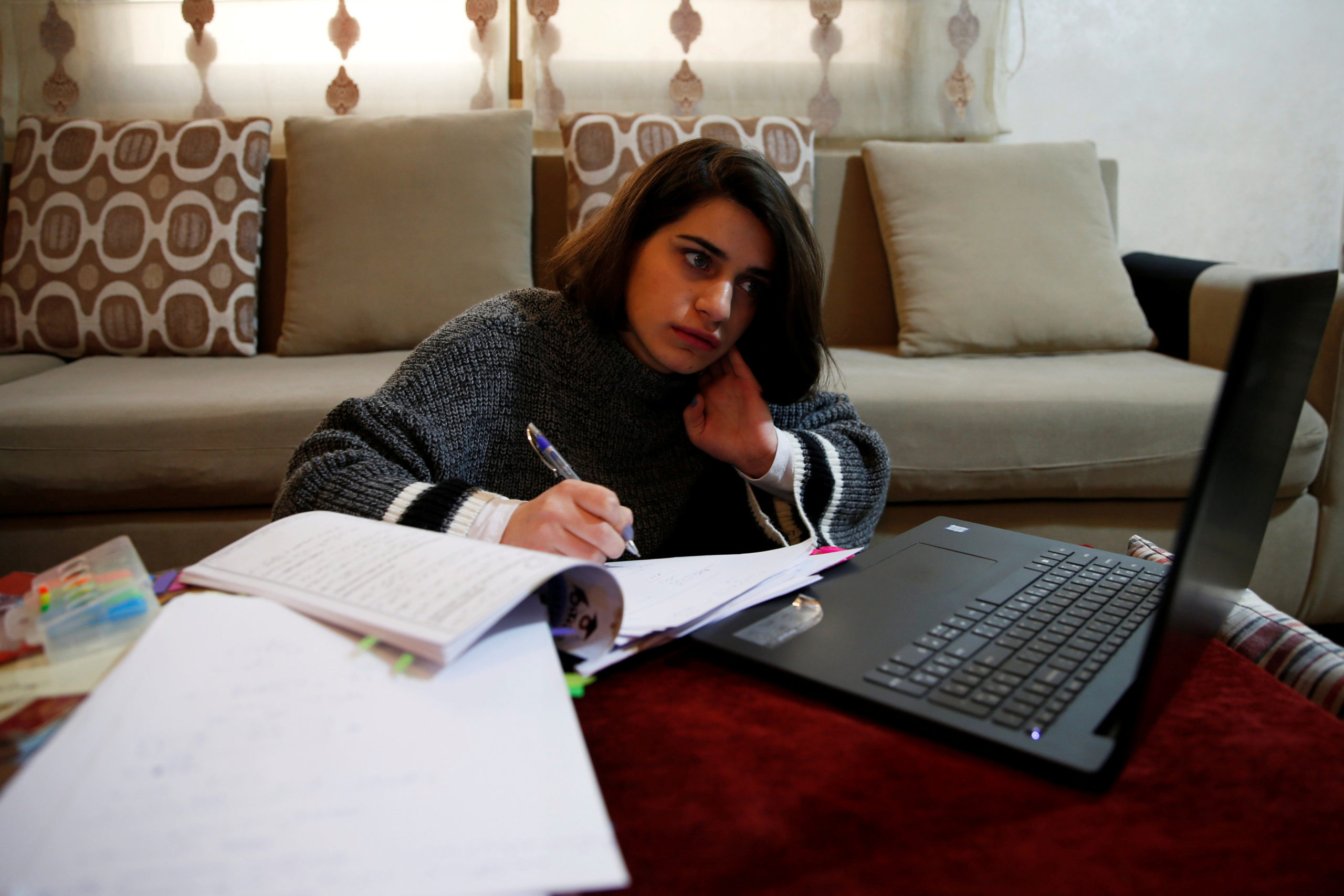Adults and teachers are also overwhelmed during these times
By Madisen Duran

Madisen Duran
Everyone’s life changed drastically March 13. The COVID-19 pandemic has affected everyone in some way. Students have been hit hard by the changes this pandemic has brought, especially those who already suffer with mental health issues and those who now experience a decline in mental well-being due to this pandemic. The stigma that comes along with mental health issues keeps many kids from reaching out for help.
When the lock-down began school came to a halt. Our morning routines were gone and soon distant learning was announced. We, the students, faced new challenges on top of the ones that already came along with just being a kid. From not having Internet access to not knowing how to join Zoom calls, and for some, not having a parent at home who is able to help navigate us through this all, because they are an essential worker.
The stress of not knowing when we will return to some kind of “normalcy” weighs heavy on many students. I am 17 years old.
 A year ago, I would have never thought that the Wi-Fi being down would cause me as much stress and anxiety as it does today. Is it the Wi-Fi being down that stresses me out or the seclusion I feel inside these walls at home? Or is it the fear of the unknown that causes this overwhelming feeling of anxiety?
A year ago, I would have never thought that the Wi-Fi being down would cause me as much stress and anxiety as it does today. Is it the Wi-Fi being down that stresses me out or the seclusion I feel inside these walls at home? Or is it the fear of the unknown that causes this overwhelming feeling of anxiety?
These feelings I had caused me to reach out for help. In doing so it made me curious as to question if other students’ mental health was being monitored in some way.
I learned that at the beginning of this school year the Gilroy Unified School District sent out an optional survey (also known as a “needs assessment”) via email to all Gilroy middle schoolers as well as students at Christopher High School and Gilroy High school. When talking with Francisca García, the school counselor at Solorsano Middle School, I learned there were 594 responses from this school alone.
 The results showed 67 percent of students missed their friends and social life, 18 percent were struggling with completing homework, and 25 percent of students felt anxious or stressed due to COVID-19, and 9.6 percent of students had feelings of sadness or depression.
The results showed 67 percent of students missed their friends and social life, 18 percent were struggling with completing homework, and 25 percent of students felt anxious or stressed due to COVID-19, and 9.6 percent of students had feelings of sadness or depression.
The parents of students who expressed feelings of sadness or depression were notified and were connected with local resources such as Rebekah Children’s Services at (408) 846- 2100, Diva Diversity at (833) 256- 4225 and the Community Solutions crisis line at (408) 683-4118.
 I know adults and teachers are also overwhelmed during these times. However, I am here to advocate for my fellow classmates and all children. I strongly urge parents and care providers to sit down with their kids and check in on their mental well-being.
I know adults and teachers are also overwhelmed during these times. However, I am here to advocate for my fellow classmates and all children. I strongly urge parents and care providers to sit down with their kids and check in on their mental well-being.
I urge my fellow students to find a trusted adult they can talk to if they are experiencing feelings of depression or harming themselves. Please talk to a trusted adult. There is nothing to be ashamed of. Please talk to someone. There are people who will listen and help you navigate through this.
Madisen Duran is a senior at Mount Madonna Continuation High School in Gilroy. She wrote this column for Morgan Hill Life.







